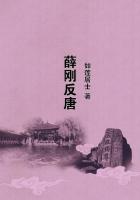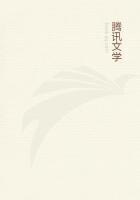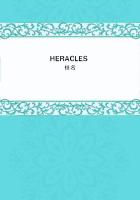Such an unnatural condition of affairs could not be permanent. The people soon grew tired of their dictator and of his methods; the authorities of Berne were roused to hostility by his refusal to accept their doctrinal programme or their model religious organisation; the Synod of Lausanne declared against him for a similar reason, and in 1538 he and his principal supporters were driven from the city.
Cardinal Sadoleto took occasion to address a stirring appeal to Geneva to return to the old faith, but his appeal fell upon deaf ears.
Calvin retired at first to Strassburg, and later he took charge of a parish in France. During the interval he devoted himself to a closer study of the disputed religious questions, and wrote much in favour of the Reformation. It was at this time (1540) that he married the widow of one of the Anabaptist leaders. Meanwhile Geneva was torn by disputes between two factions, the Libertines as they were called, who were opposed to Calvin, and the Guillermins, who clamoured for his return. The latter body gained ground rapidly, and a decree was issued recalling Calvin to Geneva (October 1540). Knowing well that his presence was necessary to restore peace to the city he refused to return unless the conditions imposed by him should be accepted. In the end he went back to Geneva practically as its religious and political dictator (1541).
The form of government introduced was theocratic. Calvin was recognised as the spiritual and temporal ruler of the city. He was assisted in the work of government by the Consistory, which was composed of six clerics and twelve laymen. The latter was the worst form of inquisition court, taking cognisance of the smallest infractions of the rules laid down for the conduct of the citizens, and punishing them by the severest form of punishment. Any want of respect for the Consistory or opposition to its authority was treated as a rebellion against God. Calvin formulated a very severe code of rules for the guidance of the people not merely in their duties as citizens and as members of his religious organisation, but also in their social intercourse with one another. Even the privacy of family life was not sacred in his eyes. All kinds of amusements, theatres, dances, cards, &c., were banned as ungodly, as were also extravagance of dress and anything savouring of frivolity. Nobody was allowed to sell wine or beer except a limited number of merchants licensed to do so by the Consistory.
Nor were these mere empty regulations designed only to keep religion before the eyes of the people without any intention of enforcing them.
The preachers were invested with extraordinary powers, and were commissioned to make house to house visitations, to inquire about violations of the rules. In their reports to the Congregation and to the Consistory they noted even the most minute transgressions. Not content with this Calvin had his spies in all parts of the city, who reported to him what people were saying about his methods and his government. The punishment meted out by the courts were of a very severe and brutal kind. No torture that could be inflicted was deemed too much for any one bold enough to criticise the Consistory or the dictator.
It was natural that such methods should be highly distasteful to those of the citizens of Geneva who were not religious fanatics. A strong party tried to resist him. They accused him of being much more tyrannical than the Pope, but Calvin denounced such opponents as libertines, heretics, and atheists. He handed them over to the devil at least in so far as his ecclesiastical censures were effective,[2]
threatened the severest spiritual punishment against their aiders and abettors, and when all such means of reproof failed he had recourse to the secular arm.
Sebastian Castellio, a well-known preacher and Scriptural scholar, was punished because he could not agree with Calvin's teaching on predestination, as was also the physician Bolsec; Ameaux one of the members of the Council was put to death because he denounced the tyranny of Calvin and of the Consistory; Gentilis was condemned to execution for differing with Calvin's teaching on the Trinity, and was compelled to make a most abject public retraction before he could obtain a reprieve. Several of the citizens were punished with long imprisonment for dancing even on the occasion of a wedding, as happened in the case of Le Fevre, whose son-in-law was obliged to flee to France because he resented warmly such methods of promoting religion. In Geneva and in the adjoining territory all Catholic practices were put down by violence, and the peasants were allowed no choice in their religious views. Possibly, however, the most glaring example of Calvin's tyranny and high-handed methods was his treatment of Michael Servetus, a Spaniard who had written against the Trinity.
He was on a journey through the territory of Geneva and was doing nothing to spread his doctrines nor acting in any way likely to bring him under the ire of Calvin. The latter having heard of his presence there had him arrested, tried, and condemned to death. To justify such harshness he published a pamphlet in which he advocated death as the only proper remedy for heresy. Theodore Beza wrote strongly in support of this opinion of his master's, as did also Melanchthon who, though differing from Calvin on so many points, hastened to forward his warmest congratulations on the execution of Servetus.[3]















